ChatGPT's new free o3-mini model is mind-blowing — 5 prompts to try first
Genius-level responses, for free

As someone who's spent countless hours testing ChatGPT's capabilities, I can confidently say that o3-mini is a game-changer for complex reasoning tasks. This compact yet powerful model consistently outperforms its predecessors in areas like scientific analysis, mathematical problem-solving and coding challenges.
Through extensive testing and refinement, I've identified five prompts that unlock o3-mini's full potential. Whether you're exploring specialized areas of interest or tackling intricate logic puzzles, these prompts will help you harness the model's advanced reasoning capabilities.
Let's explore how to craft the perfect prompts for this model, which is now accessible to both free and premium users.
What is o3-mini?
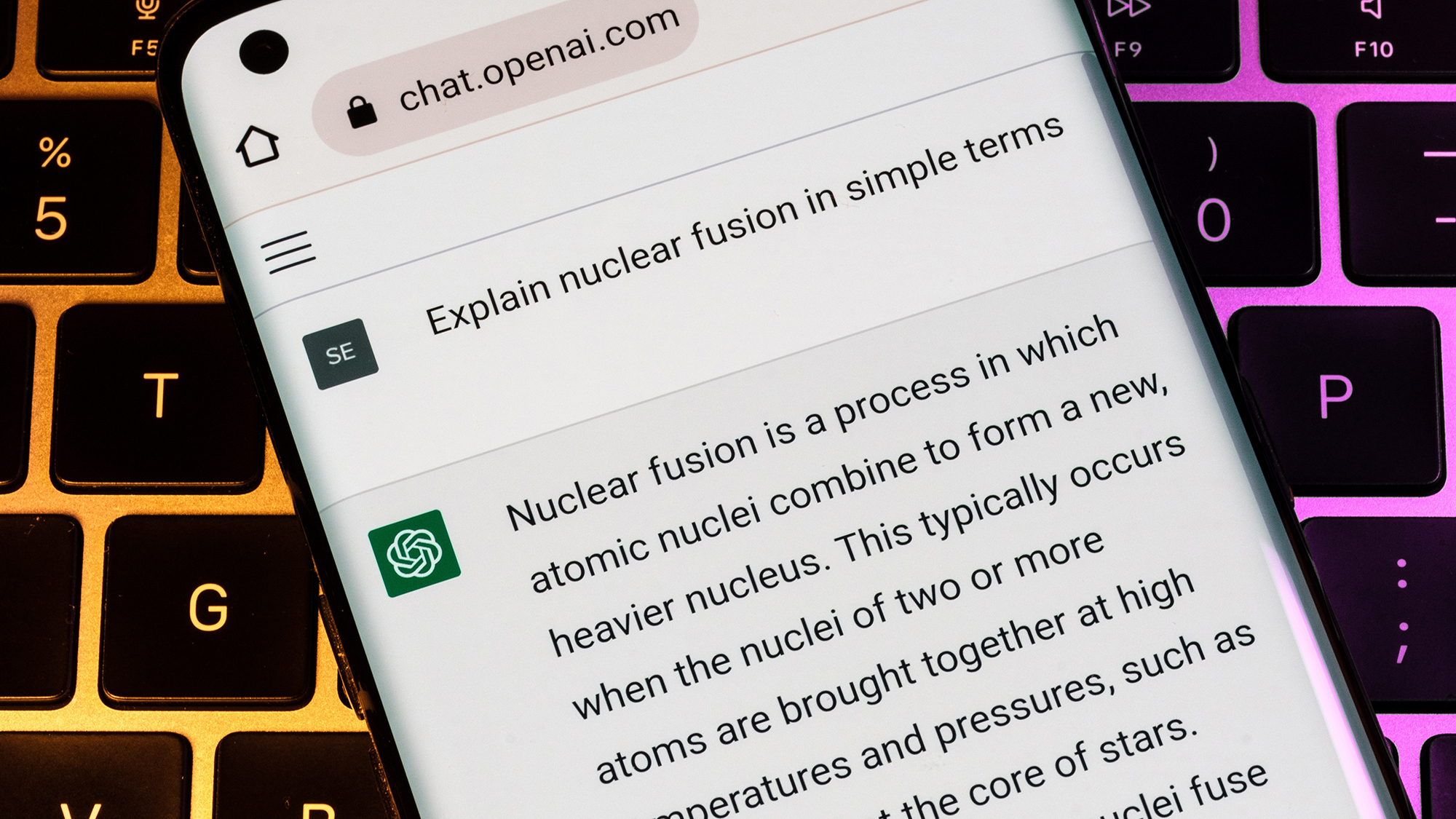
OpenAI's latest small reasoning model represents a significant leap forward in AI capabilities. Unlike traditional language models, o3-mini specializes in complex reasoning tasks, making it particularly effective for things like: scientific analysis and research synthesis, problem-solving, code optimization and debugging and automation.
All you need to do to activate this feature, is click Reasoning in the prompt box before searching.
1. Marine biology deep dive
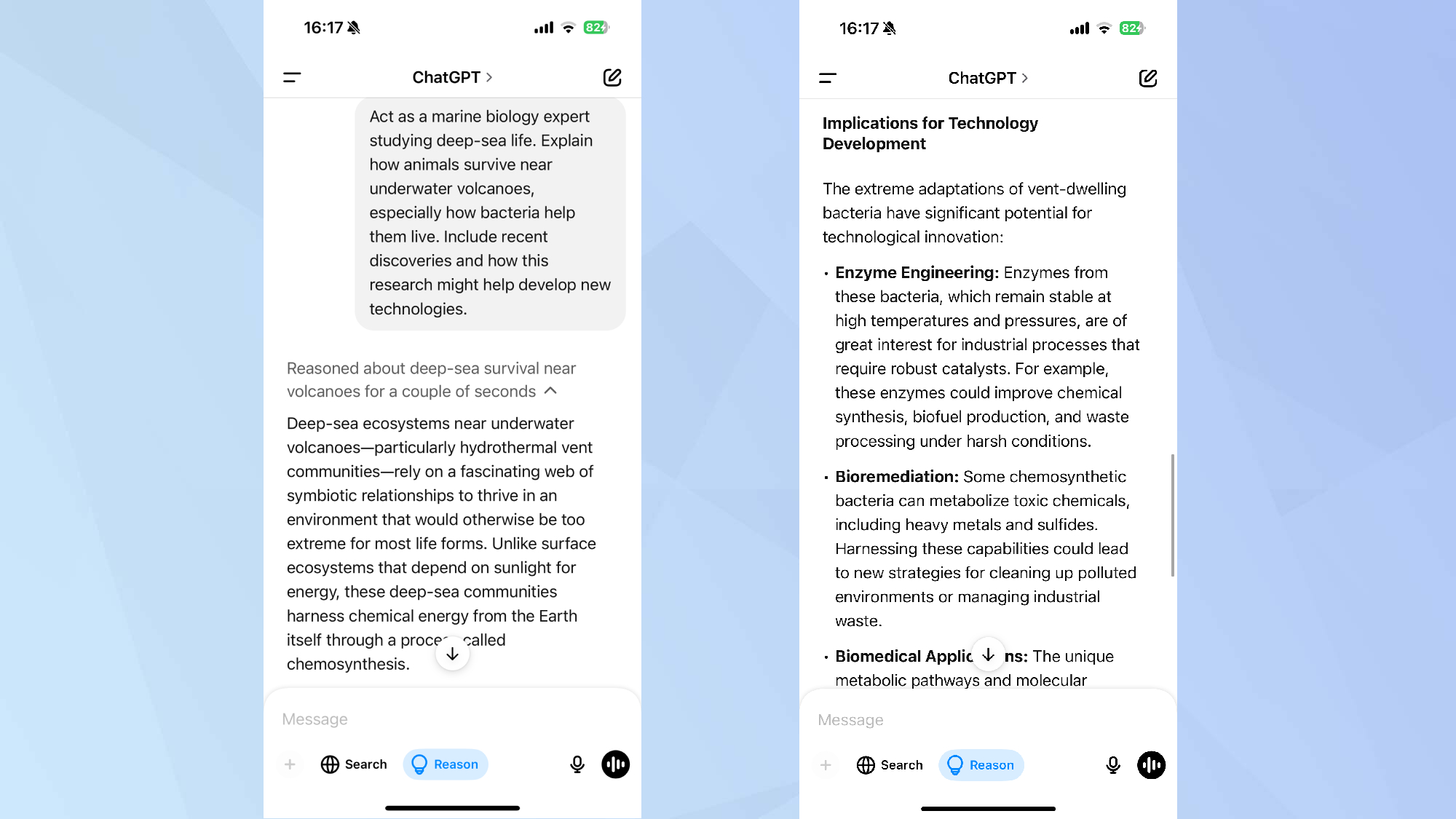
By specifying the exact expertise and topic you need, you'll get detailed explanations that break down complex subjects into clear, understandable terms. I used the following prompt:
"Act as a PHD-level marine biology expert studying deep-sea life. Explain how animals survive near underwater volcanoes, especially how bacteria help them live. Include recent discoveries and how this research might help develop new technologies."
When I tested the marine biology prompt, I was amazed by o3-mini's ability to break down complex scientific concepts. The model didn't just explain how deep-sea creatures survive near underwater volcanoes — it provided a comprehensive analysis of bacterial symbiosis, recent discoveries and real-world applications.
This kind of response demonstrates o3-mini's key strength: it doesn't just regurgitate facts but builds logical connections between scientific principles and their practical implications. Whether you're a student, professional, or just curious about cutting-edge science, o3-mini can be an invaluable tool for understanding complex topics.
2. The three gods challenge
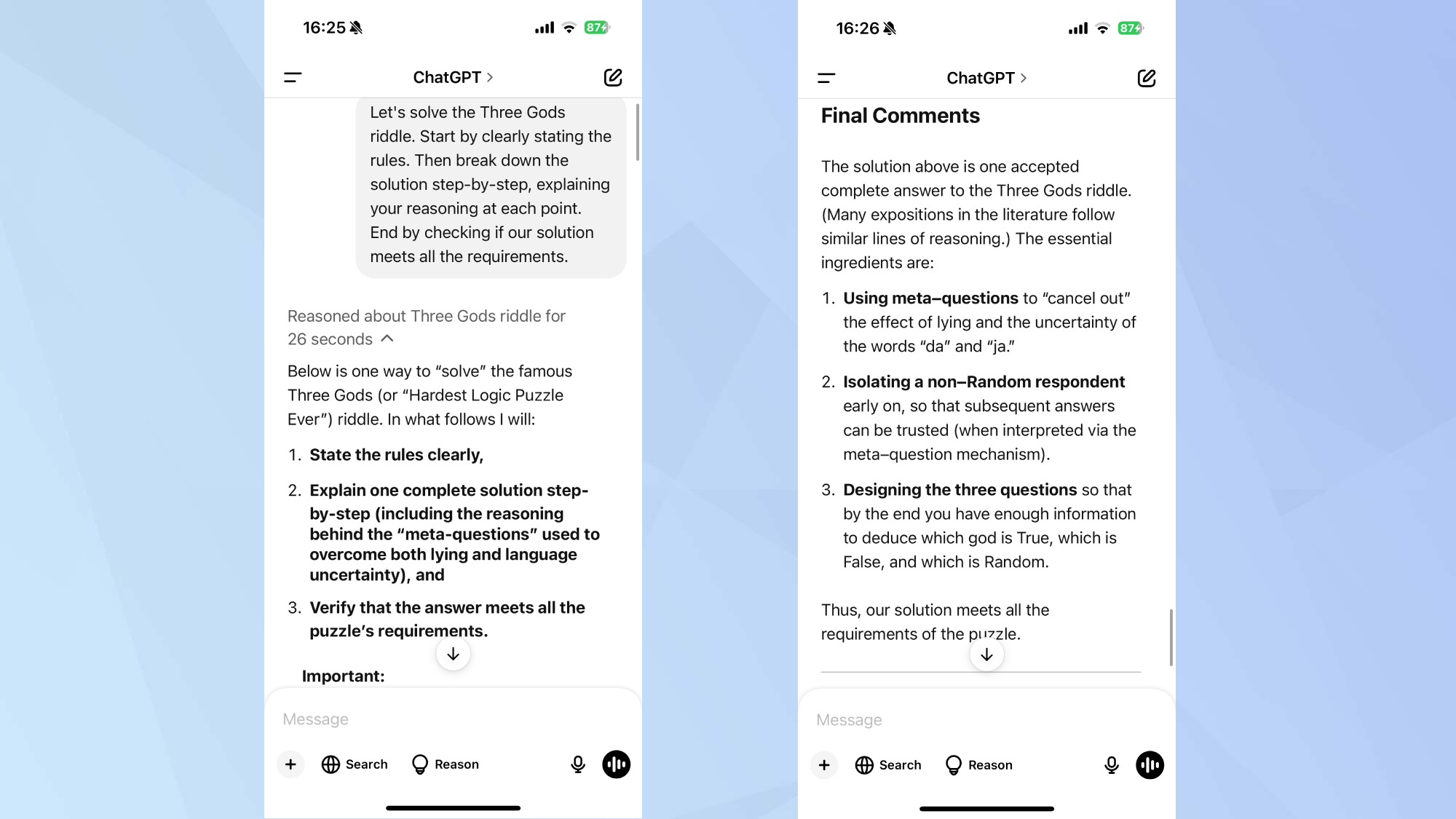
O3-mini excels at breaking down complex challenges into manageable steps. The Three Gods prompt functions like a patient tutor, showing all the work and explaining each logical leap along the way.
It's especially useful for understanding the reasoning behind challenging puzzle solutions: "Let's solve the Three Gods riddle. Start by clearly stating the rules. Then break down the solution step-by-step, explaining your reasoning at each point. Here's an insight paragraph about testing the Three Gods riddle prompt:
What's particularly noteworthy was how it handled the puzzle's complexity, especially the language barrier of 'da' and 'ja' responses and the random god element. This shows how o3-mini can tackle complex logical problems while making the solution process understandable, whether you're a puzzle enthusiast or someone learning logical reasoning techniques.
3. Philosophical framework
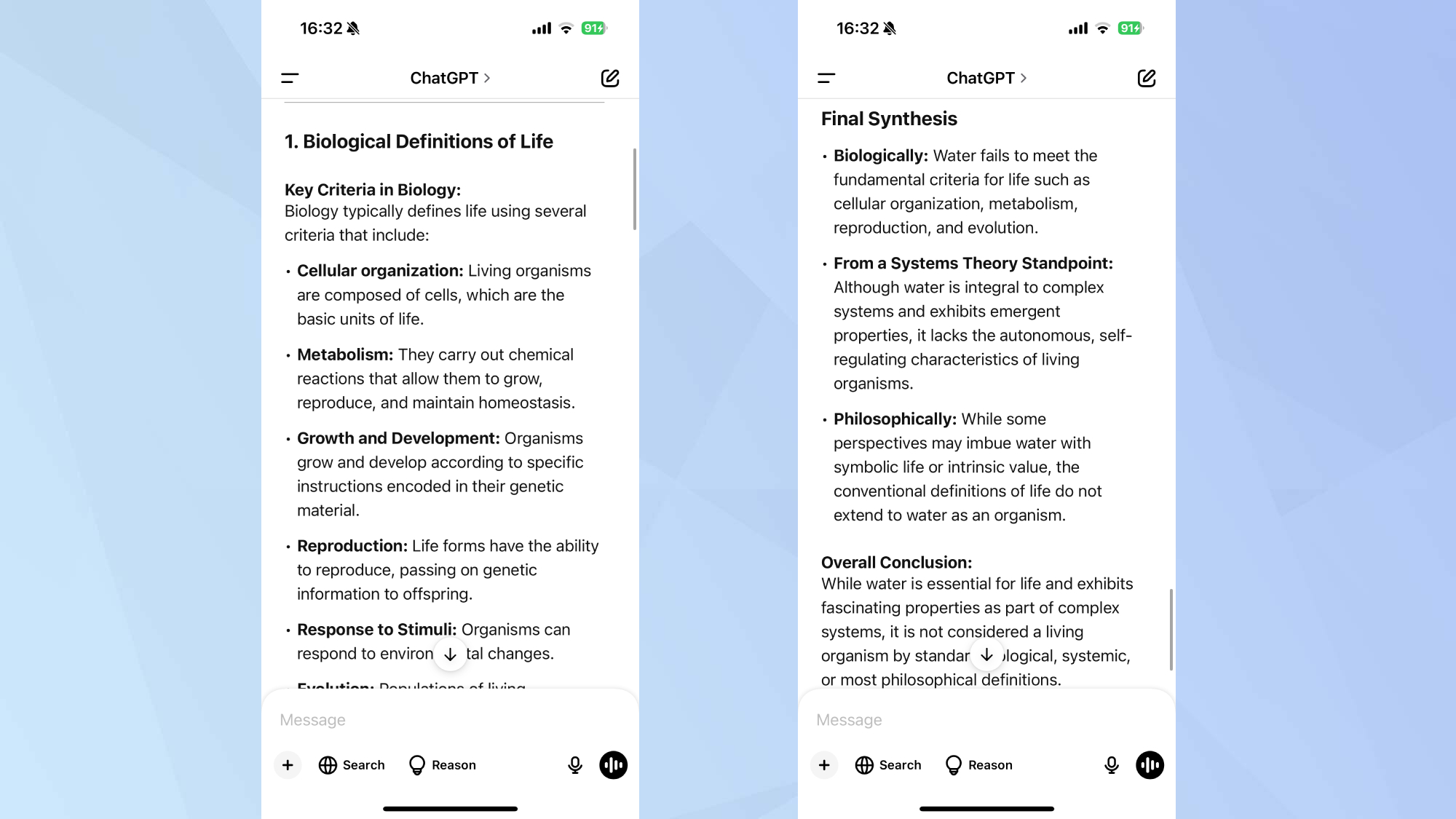
This prompt transforms complex philosophical questions into clear, structured analyses. By requesting multiple perspectives and real-world examples, you'll get a thorough breakdown of abstract concepts that makes sophisticated philosophical reasoning accessible.
I used the following prompt: "Analyze whether water could be considered a living organism. Break down your response using three frameworks: biological definitions of life, systems theory, and philosophical perspectives."
Rather than simply dismissing the question based on basic biology, the model constructed a fascinating analysis that wove together biological criteria, systems theory, and philosophical perspectives.
What impressed me most was how it balanced technical concepts (like emergence and self-organization) with more abstract philosophical ideas, while keeping everything grounded in clear examples.
4. Puzzle solver
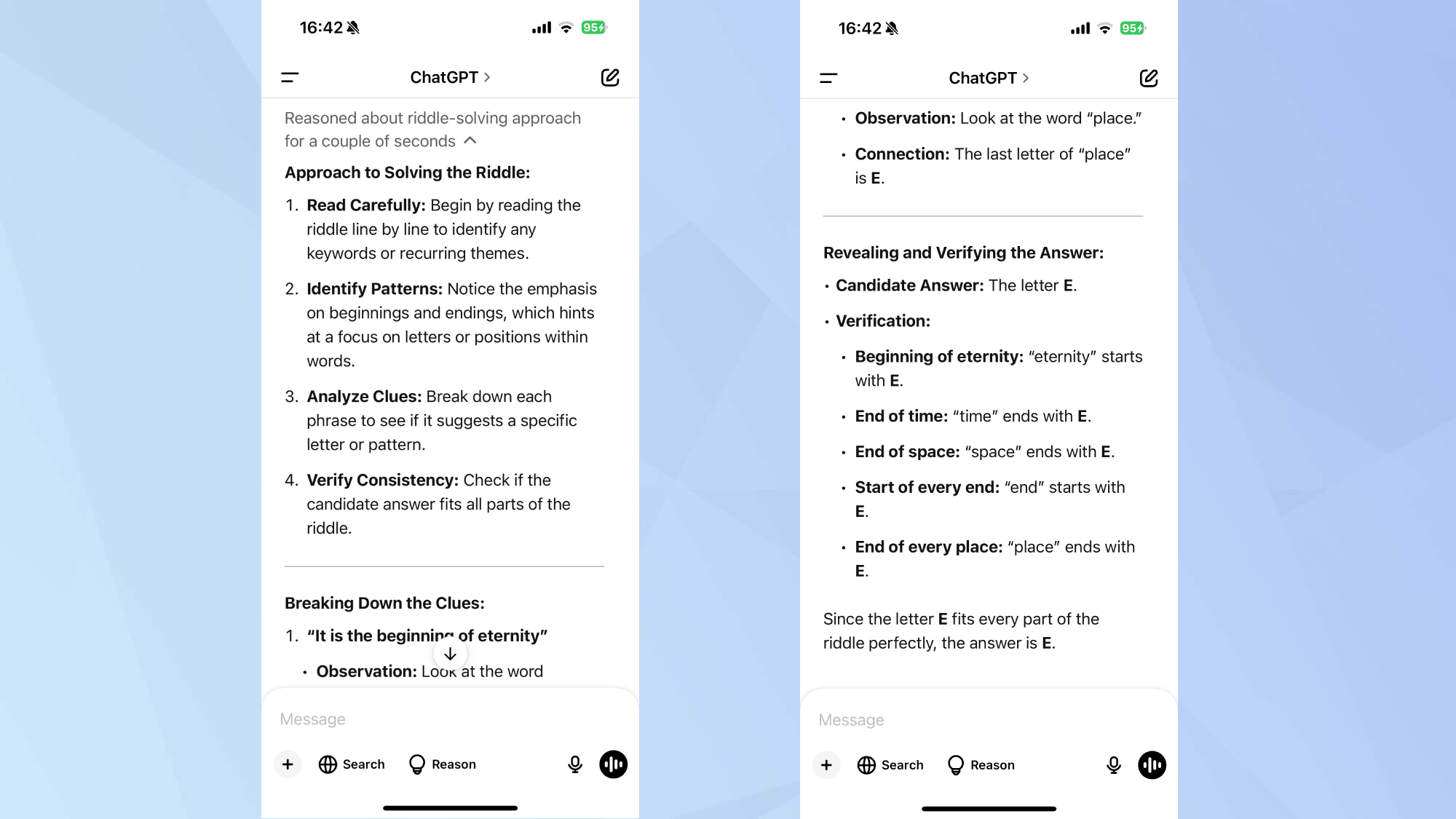
This prompt helps you break down complex word puzzles and riddles step by step. It's particularly effective because it asks for both the solution and the reasoning process, helping you understand how to solve similar puzzles in the future.
"Let's solve this riddle: It is the beginning of eternity, the end of time and space. It is the start of every end, the end of every place.' First, explain your approach to solving it. Then break down each clue and show how they connect. Finally, reveal and verify the answer by showing how it fits each part of the riddle."
When testing this riddle prompt, o3-mini showcased its methodical problem-solving abilities in an impressive way. Instead of jumping straight to the answer, it laid out a clear solving strategy and then systematically analyzed each clue.
Most impressively, it didn't just give the answer (the letter 'E') — it verified its solution by showing how it fits each part of the riddle. This approach demonstrates o3-mini's strength in not just solving puzzles, but in teaching the logical thinking process behind the solution itself.
5. Game design
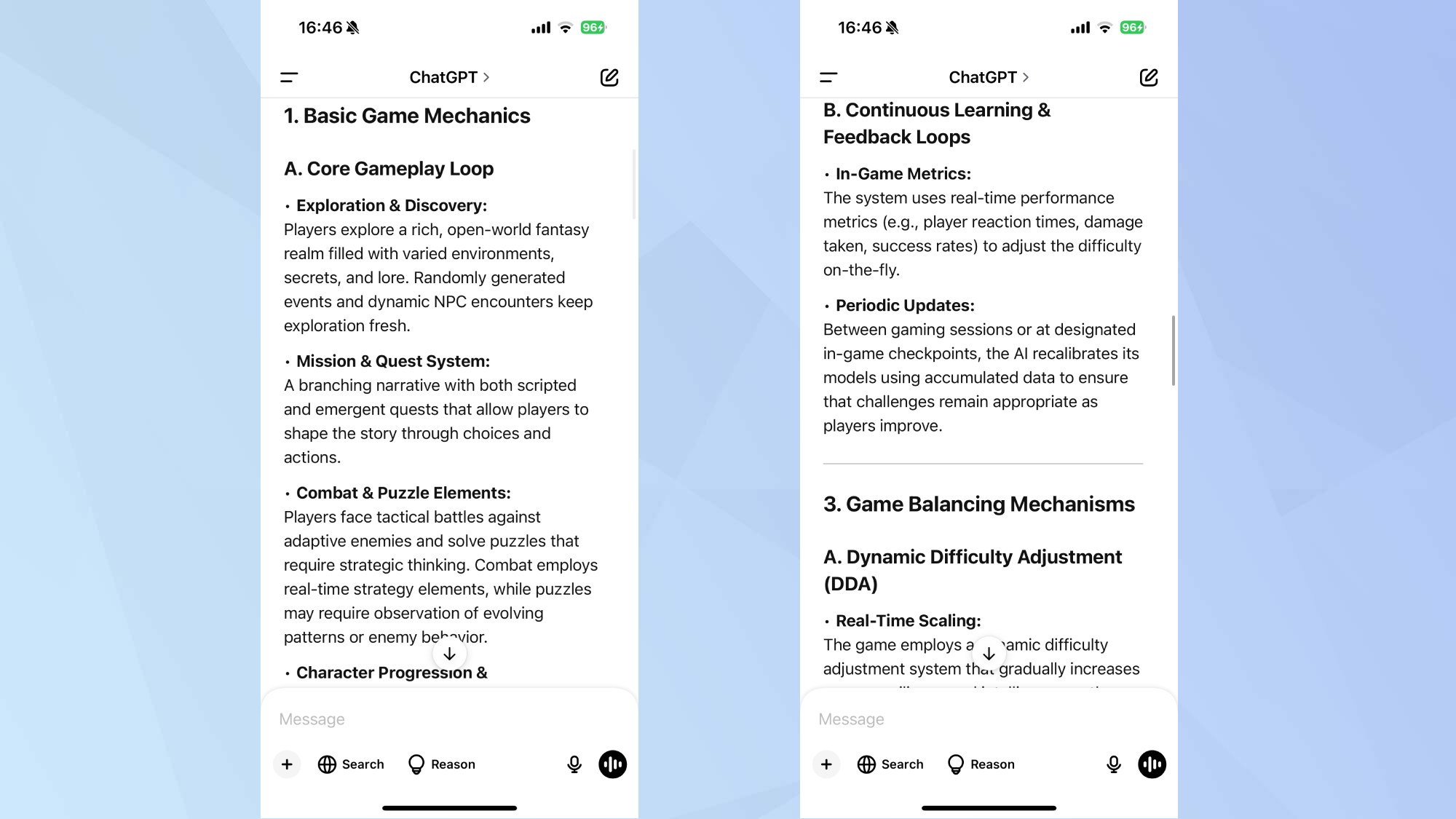
I wanted to see if o3-mini could design a game and it did not disappoint. This prompt reveals how AI gaming systems work by breaking down complex concepts into clear components. It's effective for understanding modern game mechanics or exploring new ideas in game design.
"Design a game featuring AI that learns from players. Include the basic game mechanics, how the AI adapts to player behavior, ways to keep the game balanced, and potential unexpected behaviors that might emerge. Focus on making it both engaging and fair."
With this prompt, the model didn't just describe game features — it created a comprehensive design that carefully balanced AI learning with player experience. I liked how it anticipated potential problems, like AI overfitting or difficulty spikes, and provided practical solutions for each issue.
The response demonstrated deep understanding of both game design principles and AI behavior, showing how o3-mini can tackle complex design challenges while keeping the player experience at the forefront.
Now that you've learned what ChatGPT o3-mini prompts to try first, why not check out our other AI articles? Explore I tested ChatGPT vs DeepSeek with 7 prompts or if you're new to DeepSeek, look at the 5 prompts to try first. You might also enjoy this Janus Pro hands on covering DeepSeek's image platform.
Sign up to get the BEST of Tom's Guide direct to your inbox.
Get instant access to breaking news, the hottest reviews, great deals and helpful tips.

Kaycee is an Editor at Tom’s Guide and has been writing for as long as she can remember. Her journey into the tech world began as Cazoo's Knowledge Content Specialist, igniting her enthusiasm for technology. When she’s not exploring the latest gadgets and innovations, Kaycee can be found immersed in her favorite video games, or penning her second poetry collection.
